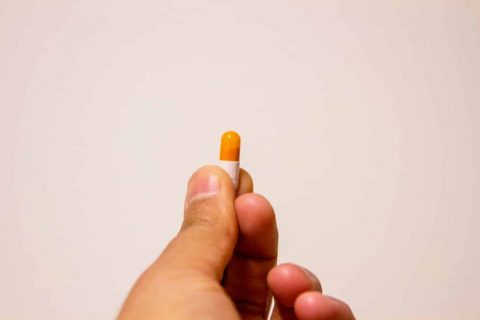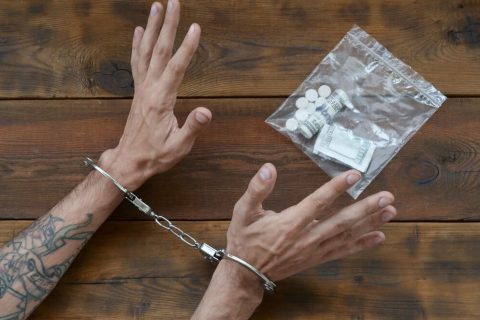How Does Heroin Affect the Brain?

Understanding the profound impacts of heroin on the brain is crucial in comprehending its addictive nature and the damage it can cause.
When asking, “How does heroin affect the brain,” one must delve into the complex science behind these interactions.
Keep reading for an overview of the effects of heroin on the brain, the neuroscience of addiction, and the risks associated with untreated heroin addiction!
Reign Residential Treatment Center is a top-rated drug and alcohol treatment in Davie. Call us to learn more about our addiction rehab center in South Florida today.
How Does Heroin Affect the Brain?
Heroin, derived from morphine, is a potent opioid that induces euphoria and pain relief.
What is the Part of the Brain That Heroin Affects?
Once in the brain, heroin is converted to morphine, which binds to opioid receptors.
These receptors are involved in pain and pleasure signaling, hence heroin’s initial pleasurable effects.
Heroin primarily affects three areas of the brain: the brain stem, the limbic system, and the cerebral cortex.
- The brain stem controls automatic processes critical for life, such as blood pressure, arousal, and respiration.
- The limbic system, also known as the brain’s “reward center,” controls emotions and feelings of pleasure.
- The cerebral cortex processes information from our senses.
What Does Heroin Do to the Brain?
The influence of heroin on the brain extends beyond the immediate sense of pleasure.
Instead of merely skimming the surface, heroin profoundly modifies the fundamental chemistry of the brain.
Chronic heroin use can lead to physical changes in the brain, including deterioration of its white matter.
This can result in decision-making issues, decreased ability to regulate behavior, and difficulty responding to stressful situations.
It affects the brain’s reward system, making other sources of pleasure seem less significant and leading users to seek the drug compulsively.
Short-term and Long-term Effects of Heroin Abuse on the Brain
Short-term effects include a rush of pleasure and warmth, clouded thinking, and drowsiness.
However, the long-term effects are far more severe and include physical and mental health changes.
These may include cognitive impairment, depression, anxiety, and social isolation.
Additionally, chronic heroin abusers may suffer from deteriorating physical health, including:
- Liver and kidney damage
- Infections from dirty needles
- Heart problems like endocarditis (inflammation of the heart valves)
- Collapsed veins due to injection complications
- Abscesses or infections at the injection site
- Weakened immune system
Risks of Heroin Addiction and the Consequences if Left Untreated
Heroin addiction carries severe risks, including a high chance of fatal overdose.
Furthermore, because heroin depresses the central nervous system, it slows breathing and can potentially lead to hypoxia, which results in decreased oxygen reaching the brain.
Hypoxia can have severe short- and long-term effects, including coma and permanent brain damage.
Heroin Withdrawal
When regular heroin users try to quit, they may experience a variety of unpleasant and sometimes dangerous heroin withdrawal symptoms, such as:
- Intense cravings
- Nausea
- Vomiting and diarrhea
- Fever and chills
- Insomnia or excessive sedation
- Restlessness and agitation
- Increased heart rate and blood pressure
- Muscle pain or spasms
- Anxiety or depression
- Hallucinations or delusions
If left untreated, these symptoms can last for a week or longer.
Heroin Overdose
In addition to withdrawal symptoms, heroin use can also lead to overdose. Signs of an overdose include slow breathing, shallow breathing, fainting or unconsciousness, and blue-tinted skin.
Heroin overdose is potentially fatal if not treated immediately with the opioid antidote naloxone.
It’s essential to seek medical help immediately if you or someone you know experiences an overdose.
How is Heroin Addiction Treated?
While the effects of heroin on the brain are undeniably devastating, it’s essential to remember that it’s never too late to seek help.
Proper heroin addiction treatment and support make a recovery possible; the brain can heal over time.
Drug addiction is treated in various ways, including medication-assisted therapy, counseling, and support groups.
Medication-assisted Treatment
- Reduces cravings and withdrawal symptoms
- Allows users to focus on behavioral changes for lasting abstinence
- It starts with an evaluation to determine the extent of treatment needed
Behavioral Counseling
- It helps uncover underlying issues contributing to addiction
- Replaces self-defeating behaviors with healthier coping strategies
- Fosters a healthy lifestyle and positive attitude
Support Groups
- Allows users to share experiences and gain peer support
- It helps boost motivation for recovery
- It provides access to resources in the community
Reign Residential Treatment Center Treats Heroin Addiction in South Florida
At Reign Residential Treatment Center, we specialize in heroin addiction treatment.
We understand addiction is complex and requires personalized care for lasting recovery.
Our comprehensive approach includes behavioral counseling (CBT and DBT), 12-step groups, and aftercare.
Our dedicated staff helps individuals achieve sobriety and transition into recovery successfully.
Contact us today to learn more about our program and how we can help you overcome heroin addiction!





